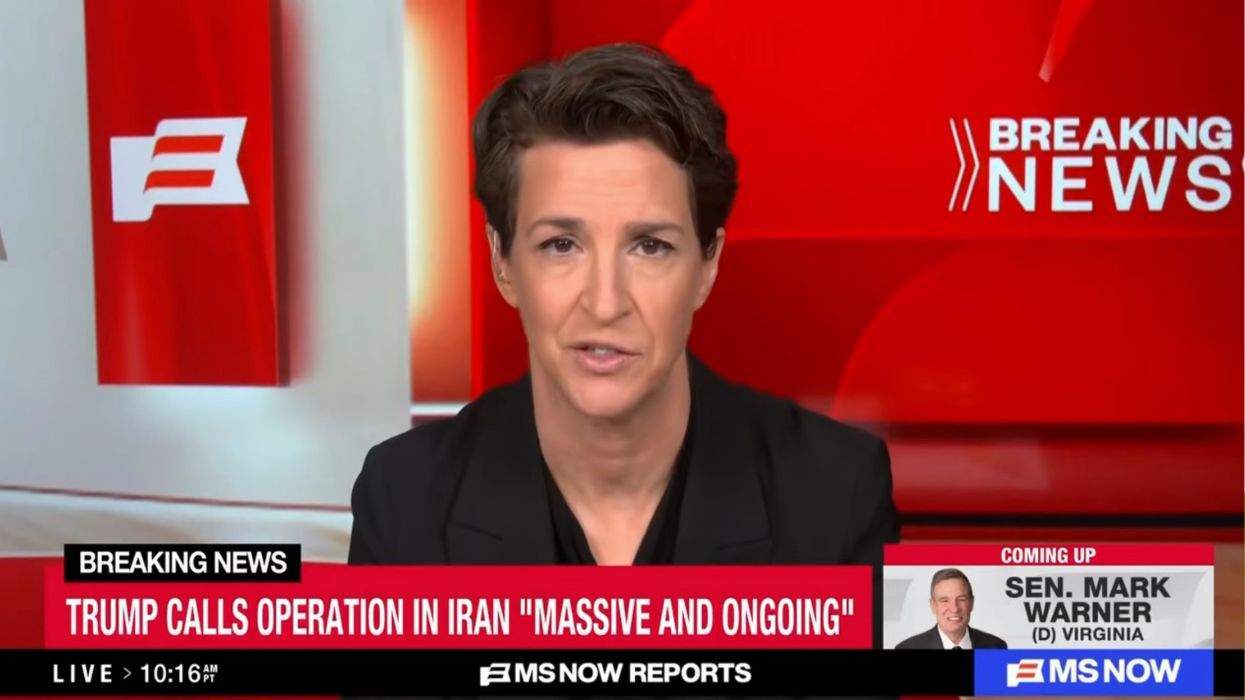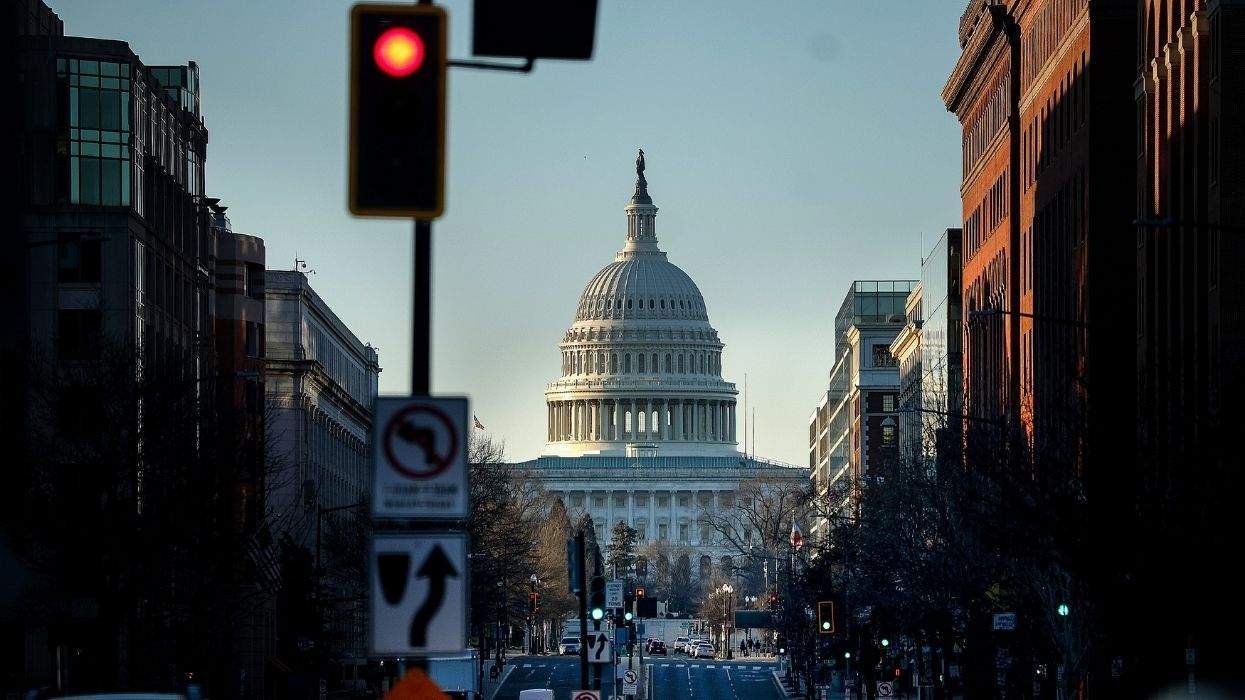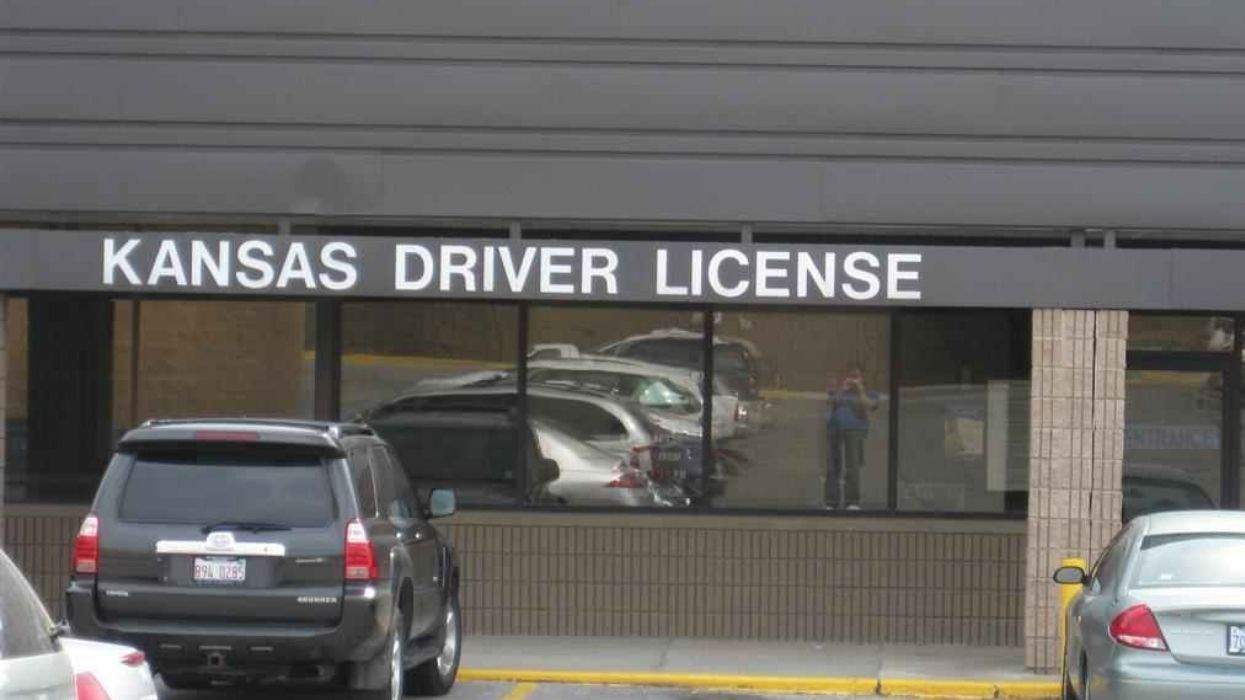Scott Simpson's eBay listing--item number 5632476886--is not your typical Beanie Baby or autographed photo of Kurt Cobain. Its bold headline reads "College Tuition and Expenses at Howard University"--next to a hefty price tag of $80,000. Posted along with an explanation of how the figure was calculated ($10,000 tuition for four years and $10,000 a year in living expenses) is the 21-year-old Washington, D.C., resident's detailed resume, which describes his extensive volunteer experience with various HIV organizations, work he began in high school at the age of 16.
The listing originally suggested that Simpson's financial woes related in part to a break with his parents because he's gay, an assertion that he quickly removed from the posting and now says he regrets. That characterization of his situation isn't accurate, he tells Advocate.com; in fact, his relationship with his parents remains "amicable." The listing now simply reads "I've applied for many scholarships, [but] my parents are not in a position to cosign any student loans and all traditional options have been exhausted. Simpson spoke with Advocate.com by telephone to explain his listing.
How did you come up with the idea to ask for your college tuition on eBay? I heard about people selling all sorts of craziness on there. At this point I have exhausted all traditional methods of funding college [so I thought I'd give it a shot].
Why $80,000?Tuition at Howard University [a highly respected private school in Washington, D.C.] is $10,00 a year, $40,000 total. I figured, though, if I'm going to ask for it, and someone's going to pay for it, I might as well ask for all of it. "Ask for what you want, not what you need." I thought a $10,000 stipend a year [for living expenses] would be reasonable.
Your listing says your parents can't cosign for loans. What do you mean by that? My parents aren't in a position to cosign my loans because of their credit history and I myself don't have an established credit history.
What are some traditional methods you have tried to obtain funding for your education? I applied to the national Target [Corporation] Scholarship and Howard University has a whole list of scholarships you apply for at once. There are some small ones I've applied to. I actually got one from AmeriCorps. I also applied for grants from the D.C. government. The AmeriCorps one I got because I volunteered for a year. [For] the D.C. government [funds], the criteria is supposed to be just if you live there but I didn't qualify.
What factors have limited your success in being selected for these grants? A lot of these scholarship winners are in a certain age group. I fall through enough loopholes that I just don't qualify, like my age.
What about the financial aid office at Howard? How have they been? I was awarded with [a loan of up to] $3,000 a year. My parents were awarded a loan of [up to] $20,000, which they're not in the position to take out. So that's the financial aid I got. I did go to the school about being an independent [student], but the independent status is very hard to establish because I'm on good terms with my parents, even though I've lived alone for 31/2 years.
Your listing ends with "I'll pretty much do whatever you want. Let's talk." What does that mean? That means I understand you're investing in me, and I wanted to keep the terms open. The phrase was supposed to serve as an open door. If someone says, "You can get the scholarship, as long as you maintain a something-something GPA," that'd be fine, or "Do these five things." I didn't want to limit myself.
Were you concerned that this might be misinterpreted? I should have put a caveat there, but I didn't think of it. I wouldn't do anything that I wouldn't want to do or I felt would compromise my moral values.
You've also had work experience as a Starbucks barista, a waiter, and a prep cook. Has education always been a priority for you? I always intended to be a student since early in life.
How did you become interested in HIV-related volunteer work? I found myself [coming out] as a 16-year-old and gay and not finding a way to connect with my community that was good for me, so I started volunteering with a clinic. It allowed me a connection--a camaraderie that I couldn't find otherwise. And I got to help people.
Why do you continue to work and volunteer for nonprofits and HIV organizations?[My feelings have] evolved since then. I've learned more about HIV; how it is the intersection of racism, sexism, and other things. Look around the world: Where is this disease going from? Who's infecting whom? And more important, how do you play a role in preventing more infections?
Why do you think your HIV work is relevant to your asking for financial support as a student? I think I've done a lot for my age. I think I've been in a position to help people, and I have. Some people are on the GPA track. I didn't do that. Some people were the student body presidents of their high schools. I didn't do that. I volunteered. I wanted to show where my strengths were.
Last year, your resume states, you went to Portland State University. Why is Howard the place to be now? I found that Portland wasn't the place for me. The city didn't feel right. So I came back [to D.C.]. Howard is the best value. It's a world-class program.
Where did you grow up? Cleveland, Ohio.
Where did you attend high school and what was it like? Charles F. Brush High School, which is in a suburb of Cleveland. It was great. I found some really good niches for me there in the drama department, film department, also doing community service that really worked well for me. I headed up an internship program there. My senior year, I wanted to spread my wings a bit more. I wanted to work at a free clinic, and I wanted to get credit for it, and they let me. I was the first one to do that.
What was it like to be out in high school? Exciting. I realized I was gay at 16 and came out shortly thereafter. At first I wasn't sure what the reaction would be. My high school was very diverse economically, religiously, and racially. I found a lot of negativity toward me, even [from] some teachers, but I also found as much positive energy. For every time I got called a f****t, I had someone come up to me and ask me questions. I also had a progressive administration, and I think they did a very good job. But my school didn't have a GSA [gay-straight alliance] at the time. So it really felt like me and the person I was dating at the time were the two gay kids.
Do you have any siblings? I have an older sister in Cleveland who's 25. We're still on good grounds. We definitely keep in touch.
Did religion play a role in your upbringing? It did. It played a strong role. I was raised Jewish: My mother's Jewish; my father's Catholic. They decided beforehand to raise us Jewish. But at the same time we still had one side of the family doing all the Catholic stuff. Also my parents are divorced, and when [each of them] remarried, my mother married a Muslim and my father a Prostestant. I got to see it all. When you have so many elements in your youth, none of them can take root too deeply. It provided me variety. I had four different options at least. I had four sort-of models for what I could be.
Are you religious? No, but I would call myself spiritual.
Whom did you come out to first in your family? What was that like? I came out first to my mother when I was 16. It was rocky at first. My mom needed time to adjust. I was dating somebody. I thought I was in love after the second date. I was hanging out with him a lot. My mother saw me coming home with hickeys on my neck. And one day in the car, she said, "We should go to dinner." On the way there, she was letting out some emotions she was having. Then I told her whom I was dating, and she sort of looked at me, and she said, "I should think not!" [Later] when she wound up realizing it and believing it, I was again in love [with another guy]. I had just broken up with the guy, and I was feeling really emotional. I wound up breaking down crying to my mother, and she learned then that it was a guy.
What is your relationship with your parents like now?They love me and support me in any way they are capable of. If they could pay for college, they would.
When did you first move to D.C. and why?I always knew I wanted to take a year off after high school. I joined AmeriCorps. They have an HIV program, and I was placed through them with SMYAL [the Sexual Minority Youth Assistance League, based in Washington, D.C.].
How much did you live on? AmeriCorps gave me a living stipend of $12,000 a year. Luckily, I qualified for food stamps so I got a bit of government assistance. I also had very creative living situations. The last apartment I lived in had four roommates in one bedroom but two bathrooms.
What happens if you don't get this money? Right now I'm working five days a week, about 30 hours a week. And I'm doing classes five days a week. I'm burned out, though. [If I don't get funding] I'm going to work full-time and go to school part-time. I figure it'll take about two years [to earn enough money to start school full-time again], which will also put me closer to that magic age when I can be considered independent: 24. It's a far cry from the worst situation. I'm not dreading it.















